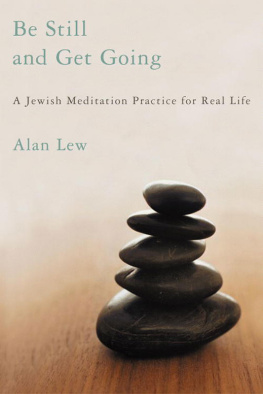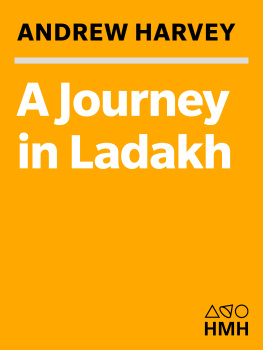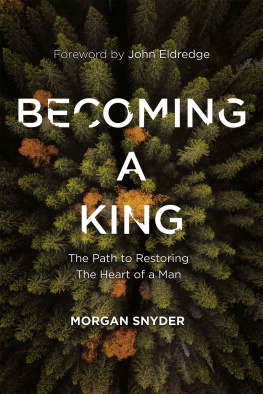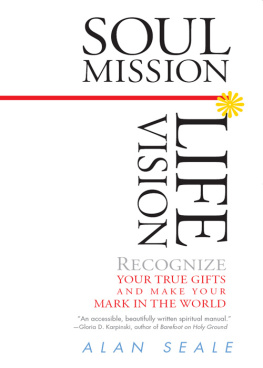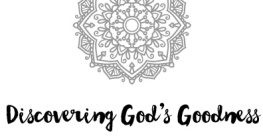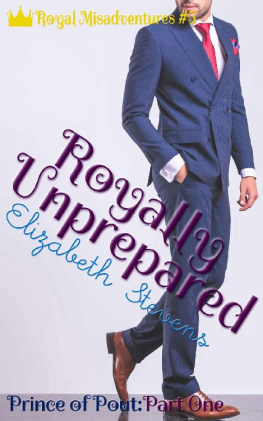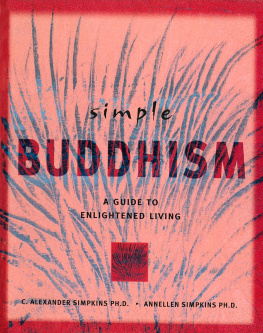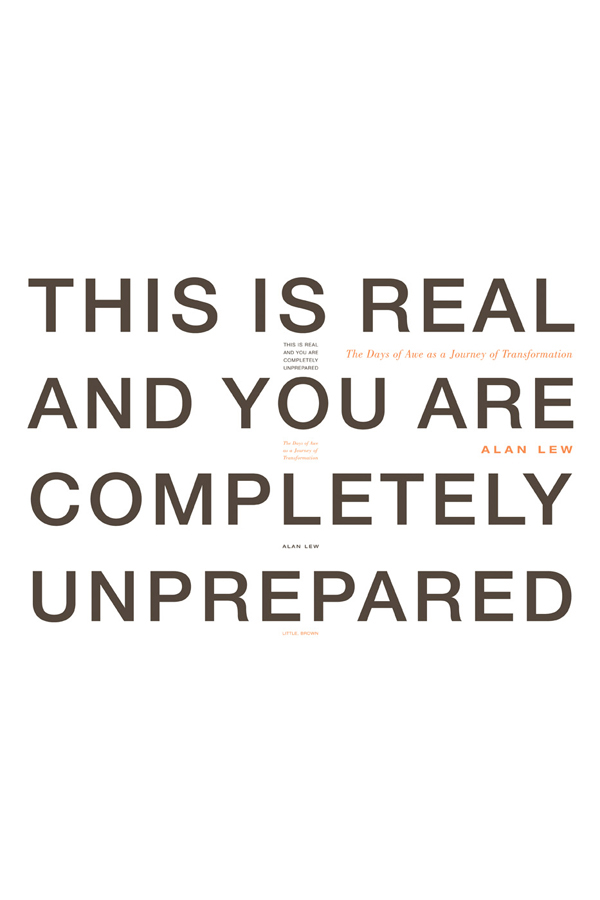In accordance with the U.S. Copyright Act of 1976, the scanning, uploading, and electronic sharing of any part of this book without the permission of the publisher constitute unlawful piracy and theft of the authors intellectual property. If you would like to use material from the book (other than for review purposes), prior written permission must be obtained by contacting the publisher at permissions@hbgusa.com. Thank you for your support of the authors rights.
Copyright 2003 by Alan Lew
All rights reserved. In accordance with the U.S. Copyright Act of 1976, the scanning, uploading, and electronic sharing of any part of this book without the permission of the publisher constitute unlawful piracy and theft of the authors intellectual property. If you would like to use material from the book (other than for review purposes), prior written permission must be obtained by contacting the publisher at permissions@hbgusa.com. Thank you for your support of the authors rights.
Copyright acknowledgments are on .
Little, Brown and Company
Hachette Book Group
237 Park Avenue, New York, NY 10017
www.hachettebookgroup.com
www.twitter.com/littlebrown
Second e-book edition: August 2003
The publisher is not responsible for websites (or their content) that are not owned by the publisher.
The Hachette Speakers Bureau provides a wide range of authors for speaking events. To find out more, go to hachettespeakersbureau.com or call (866) 376-6591.
ISBN 978-0-759-52821-5
8 Monologs (poems), 1980
One God Clapping:
The Spiritual Path of a Zen Rabbi
(with Sherril Jaffe), 1999
THE NAMES AND OTHER IDENTIFYING DETAILS OF SOME OF THE PERSONS IN THIS BOOK HAVE BEEN CHANGED.
For Sherril
My life and my breath
A MAP OF THE JOURNEY
YOU ARE WALKING THROUGH THE WORLD HALF ASLEEP.It isnt just that you dont know who you are and that you dont know how or why you got here. Its worse than that; these questions never even arise. It is as if you are in a dream.
Then the walls of the great house that surrounds you crumble and fall. You tumble out onto a strange street, suddenly conscious of your estrangement and your homelessness.
A great horn sounds, calling you to remembrance, but all you can remember is how much you have forgotten. Every day for a month, you sit and try to remember who you are and where you are going. By the last week of this month, your need to know these things weighs upon you. Your prayers become urgent.
Then the great horn sounds in earnest one hundred times. The time of transformation is upon you. The world is once again cracking through the shell of its egg to be born. The gate between heaven and earth creaks open. The Book of Life and the Book of Death are opened once again, and your name is written in one of them.
But you dont know which one.
The ten days that follow are fraught with meaning and dread. They are days when it is perfectly clear every second that you live in the midst of a chain of ineluctable consequence, that everything you do, every prayer you utter, every intention you form, every act of compassion you perform, ripples out from the center of your being to the end of time. Anger and its terrible cost lie naked before you. Grievance gives way to forgiveness. At the same time, you become aware that you also stand at the end of a long chain of consequences. Many things are beyond your control. They are part of a process that was set in motion long ago. You find the idea of this unbearable.
Then, just when you think you cant tolerate this one moment more, you are called to gather with a multitude in a great hall. A court has convened high up on the altar in the front of the hall. Make way! Make way! the judges of the court proclaim, for everyone must be included in the proceeding. No one, not even the usual outcasts, may be excluded. You are told that you are in possession of a great power, the power of speech, and that you will certainly abuse ityou are already forgiven for having abused it in the pastbut in the end it will save you.
For the next twenty-four hours you rehearse your own death. You wear a shroud and, like a dead person, you neither eat nor drink nor fornicate. You summon the desperate strength of lifes last moments. A great wall of speech is hurled against your heart again and again; a fist beats against the wall of your heart relentlessly until you are broken-hearted and confess to your great crime. You are a human being, guilty of every crime imaginable. Your heart is cracking through its shell to be reborn. Then a chill grips you. The gate between heaven and earth has suddenly begun to close. The multitude has swollen. It is almost as if the great hall has magically expanded to include an infinity of desperate souls. This is your last chance. Everyone has run out of time. Every heart has broken. The gate clangs shut, the great horn sounds one last time. You feel curiously lighthearted and clean.
Some days later you find yourself building a house; a curious house, an incomplete house, a house that suggests the idea of a house without actually being one. This house has no roof. There are a few twigs and branches on top, but you can see the stars and feel the wind through them. And the walls of this house dont go all the way around it either. Yet as you sit in this house eating the bounty of the earth, you feel a deep sense of security and joy. Here in this mere idea of a house, you finally feel as if you are home. The journey is over.
At precisely this moment, the journey begins again. The curious house is dismantled. The King calls you in for a last intimate meal, and then you set out on your way again.
This may all sound like a dreama nightmareand it is. It is a deep dream of human existence. It is also a description of the round of Jewish rituals that are observed every year between midsummer and midfallroughly early August to mid-October, although this varies slightly from year to year. It is a gesture-by-gesture description of the stages of the Days of Awe, each one constituting a passage in this ancient journey of transformation:
- Tisha BAv, the day of mourning for the destruction of the Temple in Jerusalem, the day of the crumbling of the great walls.
- Elul, the last month of the year, when the great horn of remembrance is sounded to begin the month of introspection that precedes the Days of Awe.
- Selichot, the last week of fervent prayer that precedes Rosh Hashanah.
- Rosh Hashanah itself, the head of the year, the day of remembrance; the day of the one hundred blasts and the two books.
- The Ten Days of Teshuvah, the Days of Awe proper; the period of intense spiritual transformation that begins with Rosh Hashanah and ends with Yom Kippur, ten days fraught with meaning and dread.
- Kol Nidre, the eve of Yom Kippur, when the great court is convened above and below.
- Yom Kippur itself, the Day of Atonement, the day we rehearse our own death, the day that comes to a close with the clanging shut of the great gates.
- And finally Sukkot, a joyous coda to the journey, the autumnal harvest festival, during which we build and inhabit the sukkah, a booth, the barest outline of a house.

R. Buckminster Fullers students once asked him to name the most important figure of the twentieth century. Sigmund Freud, he said without a moments hesitation. They were shocked. Why Freud? Why not Einstein, about whom Fuller had written extensively, or some other figure from the world of science or economics or architecture, to which he had devoted his considerable energy? So Fuller explained himself. Sigmund Freud, he said, was the one who had introduced the single great idea upon which all the significant developments of the twentieth century had rested: the invisible is more important than the visible. You would never have had Einstein if Freud hadnt convinced the world of this first. You would never have had nuclear physics.


